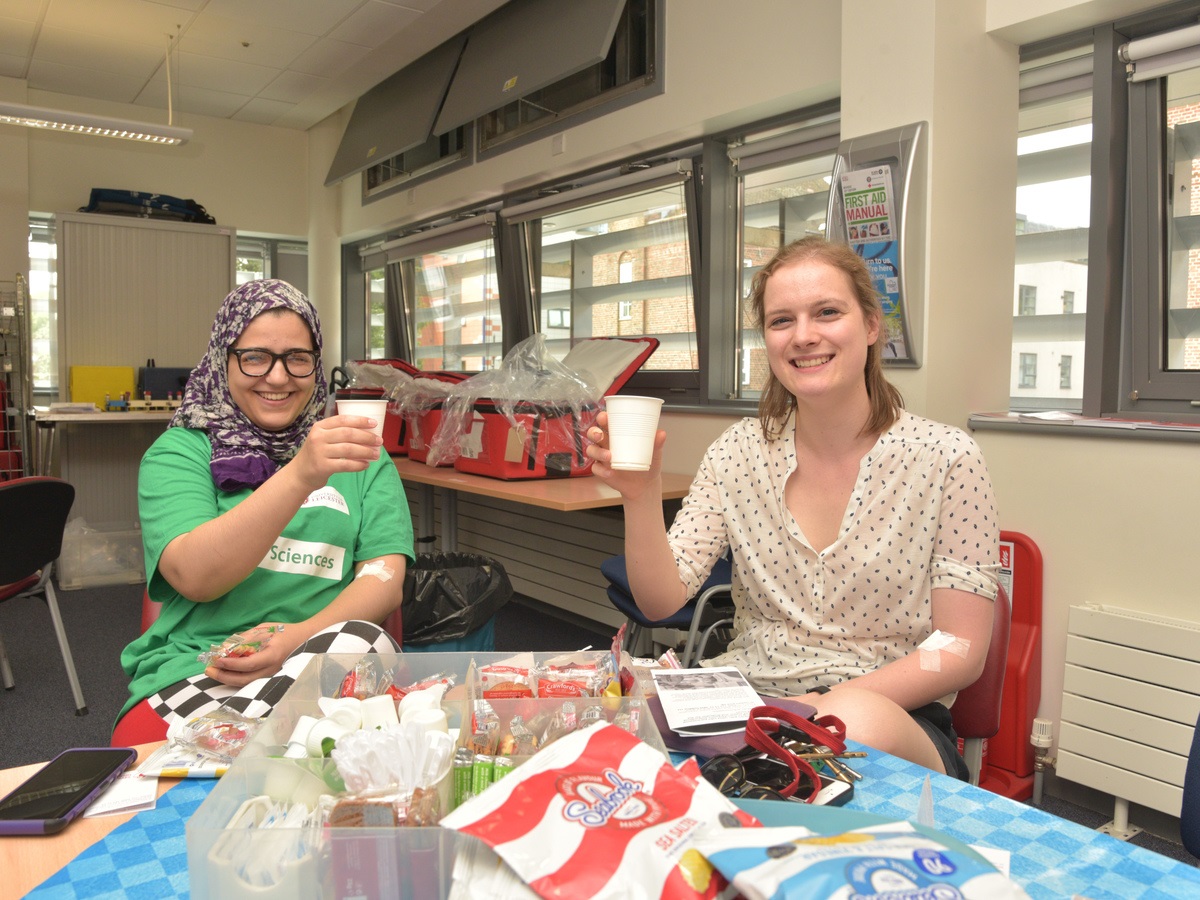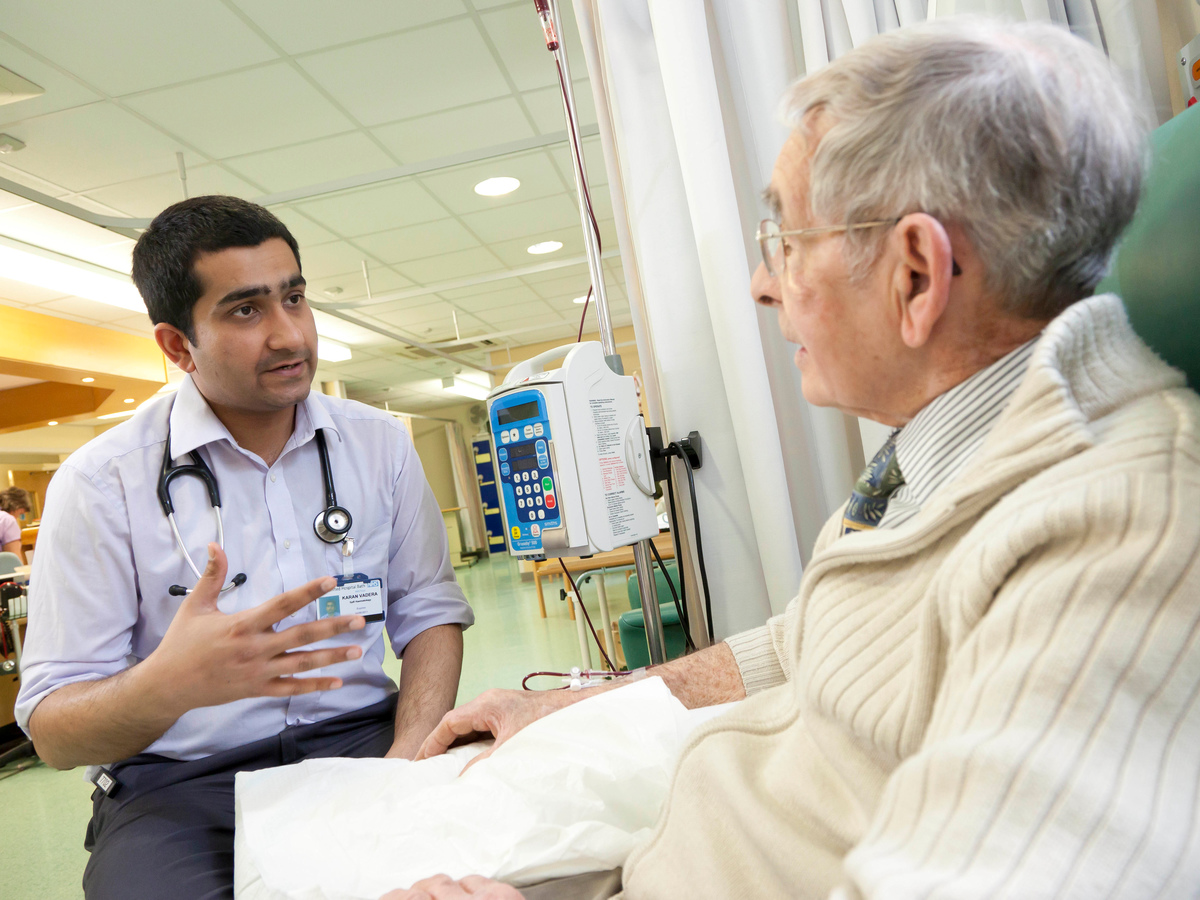Staying healthy after a liver transplant
Healthy eating, regular exercise and giving up smoking will help with your recovery
Key points
- Your lifestyle can impact on the long-term success of your liver transplant
- Adapting a healthy lifestyle is very important
- This means eating the right foods, keeping active, not smoking and avoiding alcohol
- Your transplant team will talk to you about the best ways to achieve this
How to look after yourself after a liver transplant
The care of you and your transplanted liver is on-going, and you need to stay as fit and healthy as you can so that the transplant will work for as long as possible.
Avoid alcohol
If your liver transplant was due to an alcohol-related disease, you must never drink alcohol again as you risk harming your transplanted liver. This also applies if alcohol was thought to have contributed to your liver disease, even if it was not the main cause.
Other liver transplant patients may be able to drink alcohol in moderation. Your transplant team will advise on what’s best for you.
Eat and drink the right things


After your liver transplant, it’s important to eat a nutritious, balanced diet to help encourage your transplant to work well. Aim for at least 5 portions of fruit and vegetables a day and plenty of wholegrain foods that are high in fibre. Avoid too much sugar, saturated fats and salt. A low sugar diet is particularly important for managing diabetes. A diet low in saturated fat will help to keep your cholesterol levels controlled.
You will be given information on your diet from your transplant team. It’s very important to follow this advice.
Take regular exercise

Keeping active is very important after a liver transplant. In the first few weeks, you should try to walk a little every day to prevent blood clots. As you recover, you can do more. If your recovery is going well, after 6-8 weeks, you will usually be encouraged to start moderate exercise. This could be walking, jogging, swimming or cycling. Most sports and activities are possible but you should avoid heavy contact sports (rugby, martial arts, boxing) as these risk damaging your transplanted organ.
Aim for a healthy weight

Weight gain is common after a transplant, especially in the first year. This is often a side effect of the medications, but it can also be because your diet is less restrictive. Or because you have a better appetite due to improving health. However, too much weight gain places a strain on your heart and blood vessels so it’s important to eat healthily and stay active as much as possible.
Being a healthier weight can help to lower your chances of having problems with your recovery. You should lose weight by increasing the amount of exercise you do and taking extra care with your diet. Speak to your transplant team for more advice on losing weight.
Wear sunscreen and be careful in the sun

Cancers, especially skin cancers, are more common in patients who have had a liver transplant. Avoid staying out in the sun for long periods, and wear factor 50 sunblock, long-sleeved shirts and a hat if you are in the sun. If you are invited for screening tests (e.g. a mammogram, a cervical smear or bowel cancer screening) it’s strongly recommended that you attend.
Control your blood pressure
Taking regular exercise, eating a balanced diet and keeping to a healthy weight are very important for controlling blood pressure. It’s not just about taking blood pressure tablets!
Keep your bones strong
Again, exercise is important, but you may need bone scans to find out if there is any thinning of your bones. You may be advised about changes to your lifestyle or even given medications if there’s a problem.
Not smoking
If you smoke, it's time to stop. Ideally, you should quit before your transplant. Smoking increases the risk of strokes, heart and lung problems, and hernias in transplant patients. Giving up cigarettes will help prevent problems during the transplant surgery and maintain your health after your transplant. Speak to your transplant team for help on quitting smoking.
Get support from your transplant team
They can help you with diet plans, activity schedules and giving up smoking.


